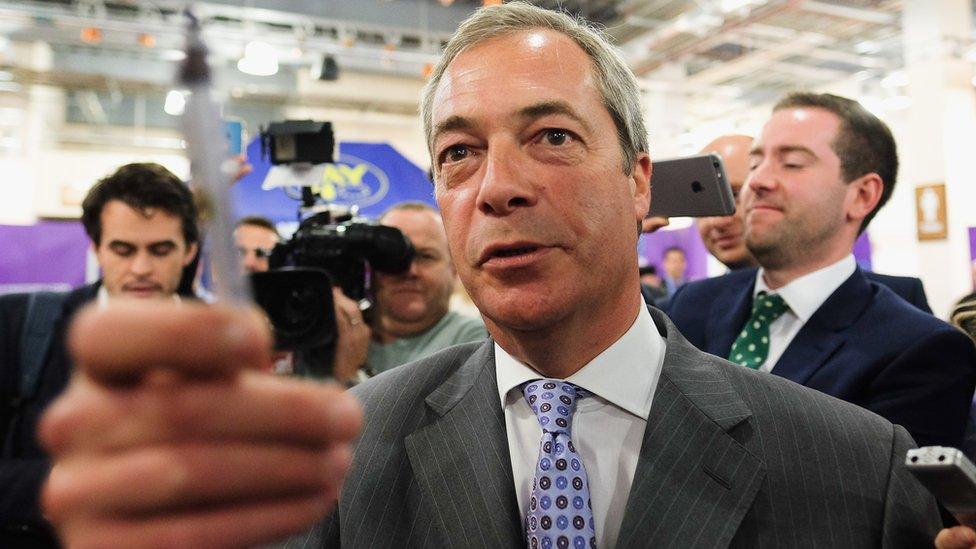UKIP conference: What 'kippers' think about EU vote
- Published
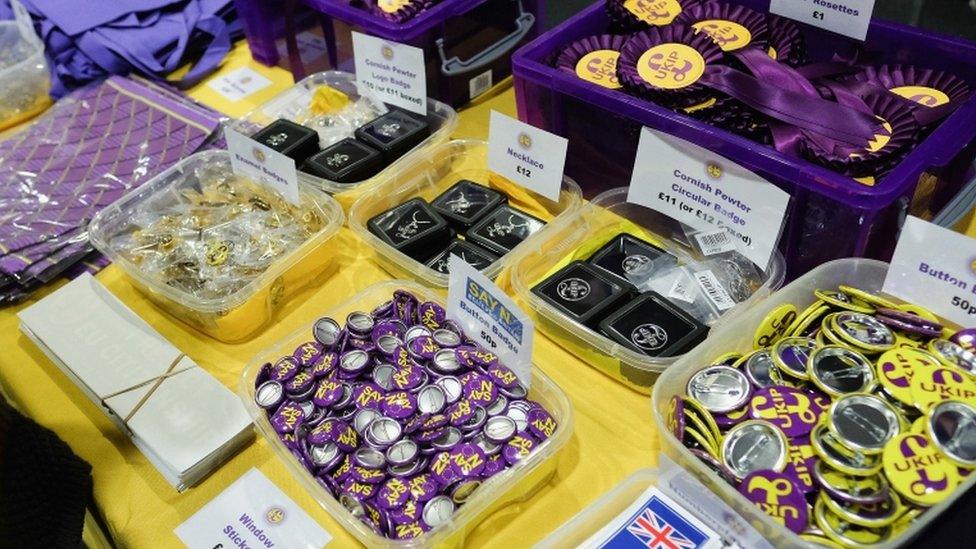
Doncaster racecourse is normally used to welcoming competition from across Europe but the message from the venue playing host to UKIP's annual gathering is a rather different one.
The conference hall is awash with merchandise bearing the words "No to EU", "Nigel says no" and other variations on the theme of leaving the EU and freeing the UK to spread its wings.
The knowledge that a referendum on the UK's future in Europe is beckoning - none too subtly reinforced by Nigel Farage's use of Europe's Final Countdown as the musical backdrop to his grand conference entrance - should be the stuff of dreams for the party's activists.
But Mr Farage has caused ripples with his sobering message that his priority is winning the vote and that UKIP's own electoral fortunes must play second fiddle during that time.
'Country before party'
This message to put "country before party" comes at a time when UKIP is still numb from the disappointment of only winning one seat at the election and the infighting that followed it.
But UKIP members seem happy, in public at least, to accept this, displaying a sense of confidence that the party is strong enough to cope with whatever the public's verdict is on the EU question.
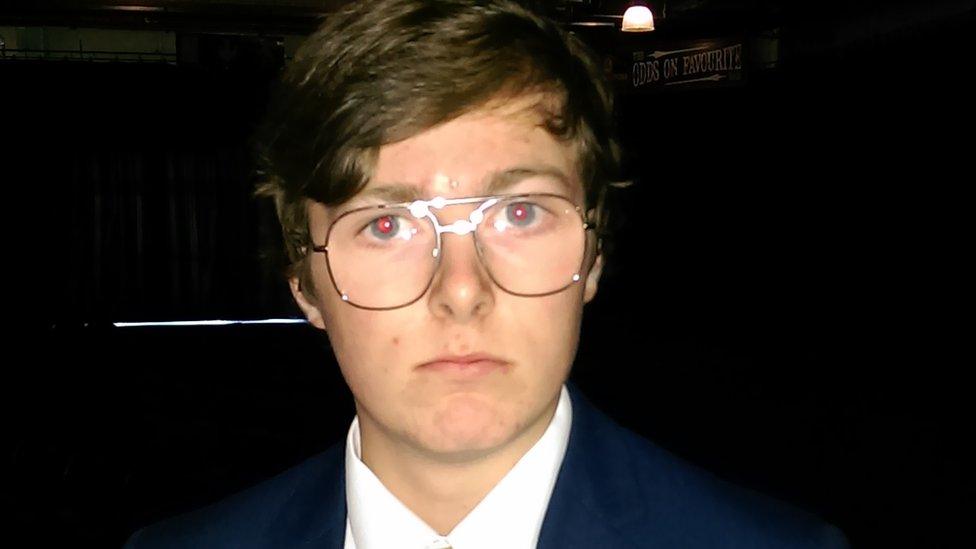
Charlie Amos thinks UKIP won't be hurt by either a Yes or No vote in the EU referendum
"It is about the result," says Charlie Amos, from Sussex. "It is not about the party, the party was founded for this reason - it will be stupid to give up on it now.
"We don't want to advance the party through this, that is probably going to be a by-product."
"I don't think any result will damage UKIP, we are the third most popular party in the UK," says Philip Broughton who represented the party in Hartlepool back in May and only lost by less than 3,000 votes.
"We have to concentrate on the referendum but after that we have to build for the next election because there are a number of seats we can win."
'Winning the argument'
Still the outsiders of British politics despite having won nearly four million votes at the election, UKIP activists show relish for being underdogs in a referendum battle where they are likely to be faced by massed ranks of big business, the government, the official opposition and the trade unions.
"It is going to be very close but I think it is doable," Phillip Broughton believes.
"It will be hard, everyone knows that it will not be easy but we will throw the kitchen sink at it - we have got to get out and make the case on the economics, sovereignty and controlling our borders. We are starting to win a lot of those arguments."
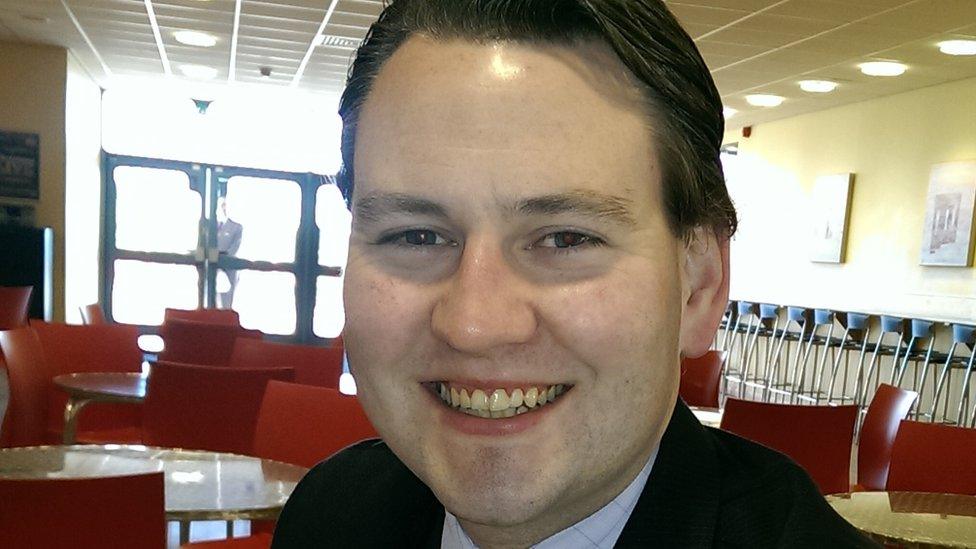
Phillip Broughton says that minds will be focused once the referendum date is set
The message that the UKIP hierarchy is trying to spread here is one of unity, in an attempt to bring the disparate factions in the "Out" camp together and to end previous squabbling.
Well they may love him - and one lady here has gone as far as to get a tattoo of him on both arms - but even UKIP members recognise that Nigel Farage cannot win the vote single-handed.
"It is not a UKIP thing, it is not a Nigel Farage thing. It is all of the people who believe in Euroscepticism will join forces," says Phillip Broughton.
"Once the referendum date is called and starts to focus people minds of the campaign you will find like-minded people, from all parties and none, coming together."
'Fear factor'
Andrew Garcarz, who voted 'no' in 1975 when the British people last had a say on Europe, says it will be people like him and the 250,000 others who belong to Eurosceptic groups who will have to "bust myths" coming from the other side such as the oft-quoted reference to the jobs which depend on Europe.
"We have 18 months of hard foot slogging to get out our message," says the Sutton Coldfield activist. "We may not have resources but we have the people and the determination.
"The only fly in the ointment is the fear factor. That happened in the last election with fear of SNP and Labour working for the Conservatives. If that tactic is used again to scare people about three million jobs and loss to economy, if we can past that, I am sure we will be fine."
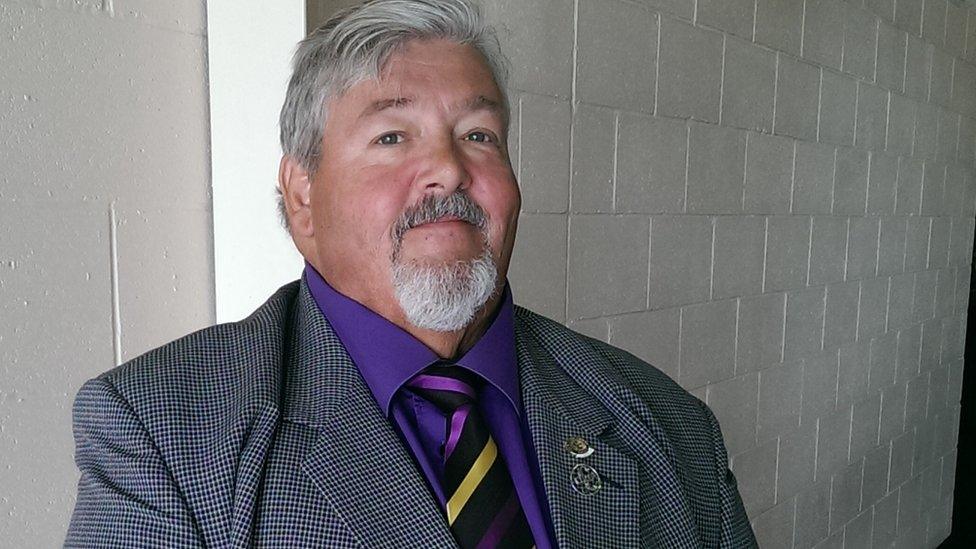
Andrew Garcarz is concerned about the fear factor
If Nigel Farage takes more of a back seat during the campaign, and he has insisted that he will not lead the "Out" campaign, who will fill that gap?
One name that keeps coming up in UKIP circles is the entrepreneur James Dyson, although there is no sign of him in South Yorkshire and little sign at the moment that he is willing to be drafted.
But Charlie Amos is adamant that the Out campaign has to have the support of business as well as elements of the trade union movement if it is to prevail.
"I reckon we can persuade a lot of businesses to be on the Out side if we could get some celebrities," he says. "If we could put up people like that (Dyson). Having a brand name backing you, people would go 'if they back it why shouldn't I?"
'Britain first'
It is not clear if the celebrity he had in mind is former apprentice star Katie Hopkins, whose appearance at Doncaster has been one of the talking points in the media.
She is nominally at the conference as a guest of the Electoral Reform Society to talk about the iniquities of the electoral system but despite voting Conservative in May, she seemed to be very much in tune with UKIP on the issues of Europe and immigration.
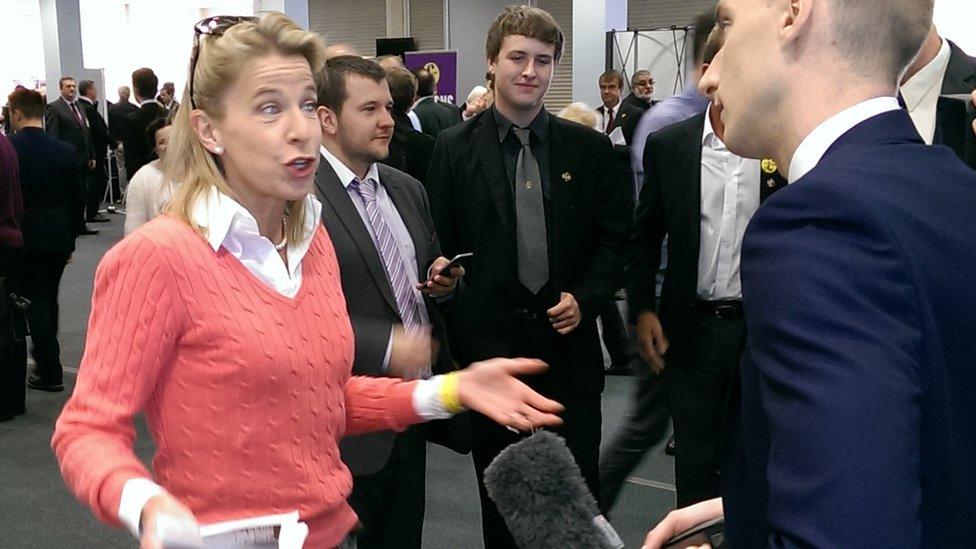
"Would I vote right now to leave the EU? Yes absolutely I would. We are about to be deluged by a wave of immigration and I don't think it is something our country can cope with anymore.
"The things that matter are British people and putting British people first. I don't think being told what to do by Angela Merkel is the right thing for our country."
The experience of the Scottish referendum suggests the issue of Europe will not disappear from British politics whatever the result, even if there is a clear-cut victory for one side.
But a decisive result could have major implications for a party that was founded with the sole objective, deputy leader Paul Nuttall has acknowledged, of "extricating" the UK from the EU.
If it suffered a landslide defeat, some believe UKIP will need to rethink its entire strategy and refocus its message on issues other than Europe and immigration.
- Published25 September 2015
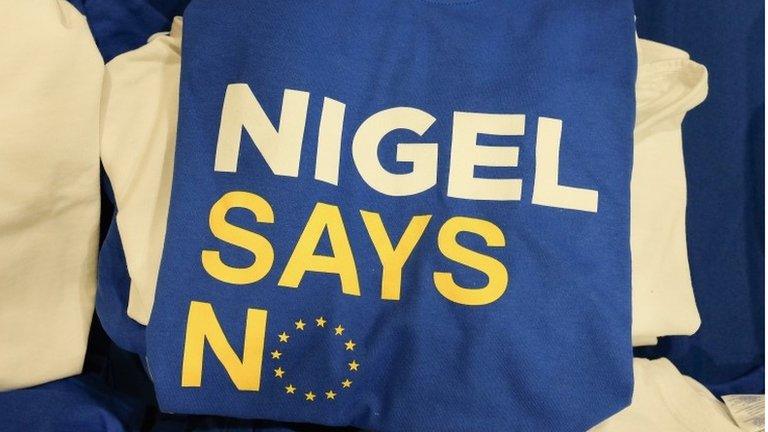
- Published25 September 2015
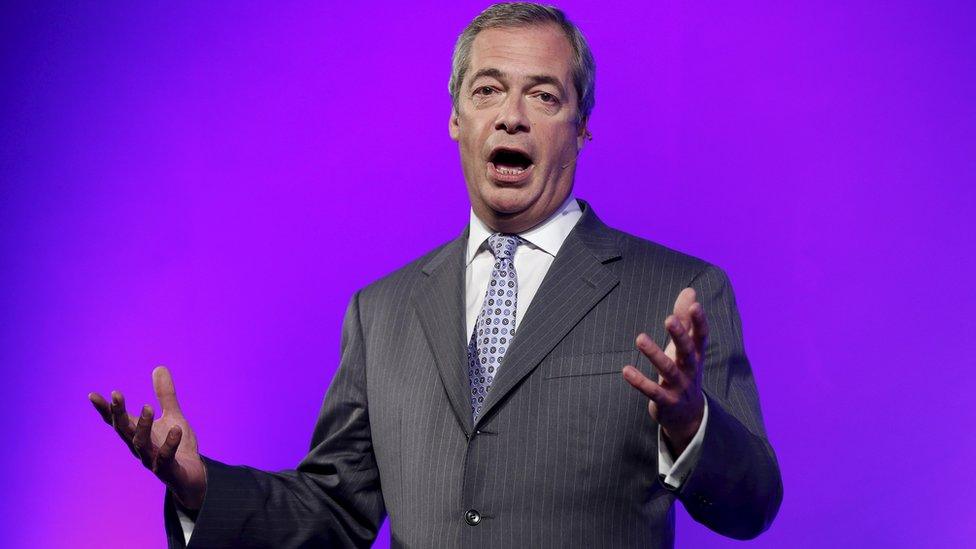
- Published25 September 2015
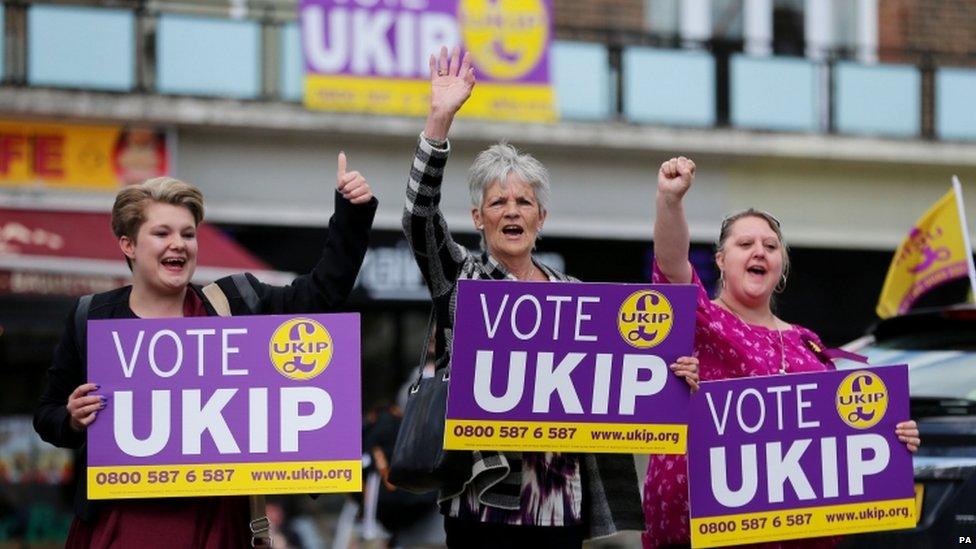
- Published25 September 2015
